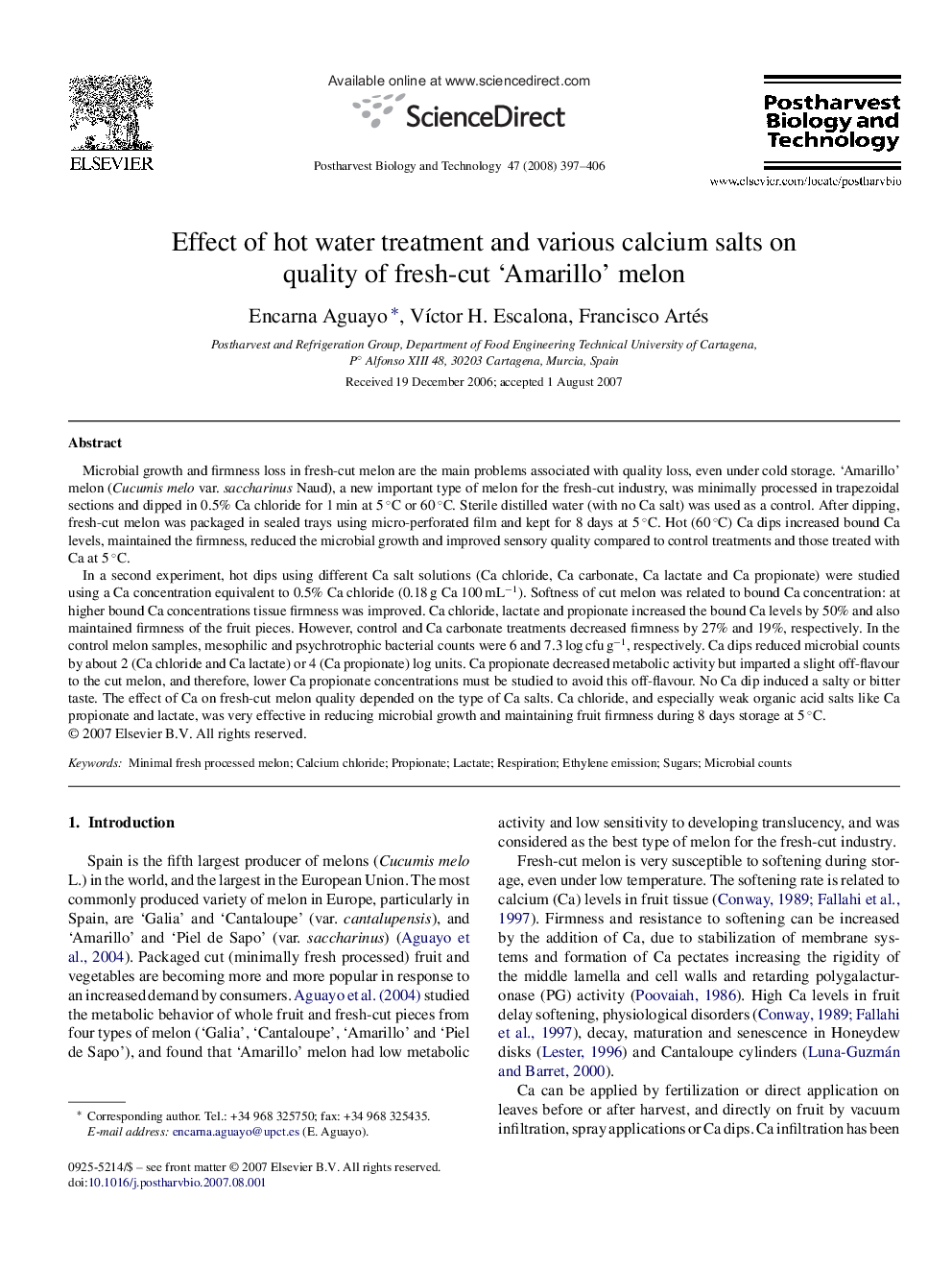| کد مقاله | کد نشریه | سال انتشار | مقاله انگلیسی | نسخه تمام متن |
|---|---|---|---|---|
| 4519745 | 1322851 | 2008 | 10 صفحه PDF | دانلود رایگان |

Microbial growth and firmness loss in fresh-cut melon are the main problems associated with quality loss, even under cold storage. ‘Amarillo’ melon (Cucumis melo var. saccharinus Naud), a new important type of melon for the fresh-cut industry, was minimally processed in trapezoidal sections and dipped in 0.5% Ca chloride for 1 min at 5 °C or 60 °C. Sterile distilled water (with no Ca salt) was used as a control. After dipping, fresh-cut melon was packaged in sealed trays using micro-perforated film and kept for 8 days at 5 °C. Hot (60 °C) Ca dips increased bound Ca levels, maintained the firmness, reduced the microbial growth and improved sensory quality compared to control treatments and those treated with Ca at 5 °C.In a second experiment, hot dips using different Ca salt solutions (Ca chloride, Ca carbonate, Ca lactate and Ca propionate) were studied using a Ca concentration equivalent to 0.5% Ca chloride (0.18 g Ca 100 mL−1). Softness of cut melon was related to bound Ca concentration: at higher bound Ca concentrations tissue firmness was improved. Ca chloride, lactate and propionate increased the bound Ca levels by 50% and also maintained firmness of the fruit pieces. However, control and Ca carbonate treatments decreased firmness by 27% and 19%, respectively. In the control melon samples, mesophilic and psychrotrophic bacterial counts were 6 and 7.3 log cfu g−1, respectively. Ca dips reduced microbial counts by about 2 (Ca chloride and Ca lactate) or 4 (Ca propionate) log units. Ca propionate decreased metabolic activity but imparted a slight off-flavour to the cut melon, and therefore, lower Ca propionate concentrations must be studied to avoid this off-flavour. No Ca dip induced a salty or bitter taste. The effect of Ca on fresh-cut melon quality depended on the type of Ca salts. Ca chloride, and especially weak organic acid salts like Ca propionate and lactate, was very effective in reducing microbial growth and maintaining fruit firmness during 8 days storage at 5 °C.
Journal: Postharvest Biology and Technology - Volume 47, Issue 3, March 2008, Pages 397–406